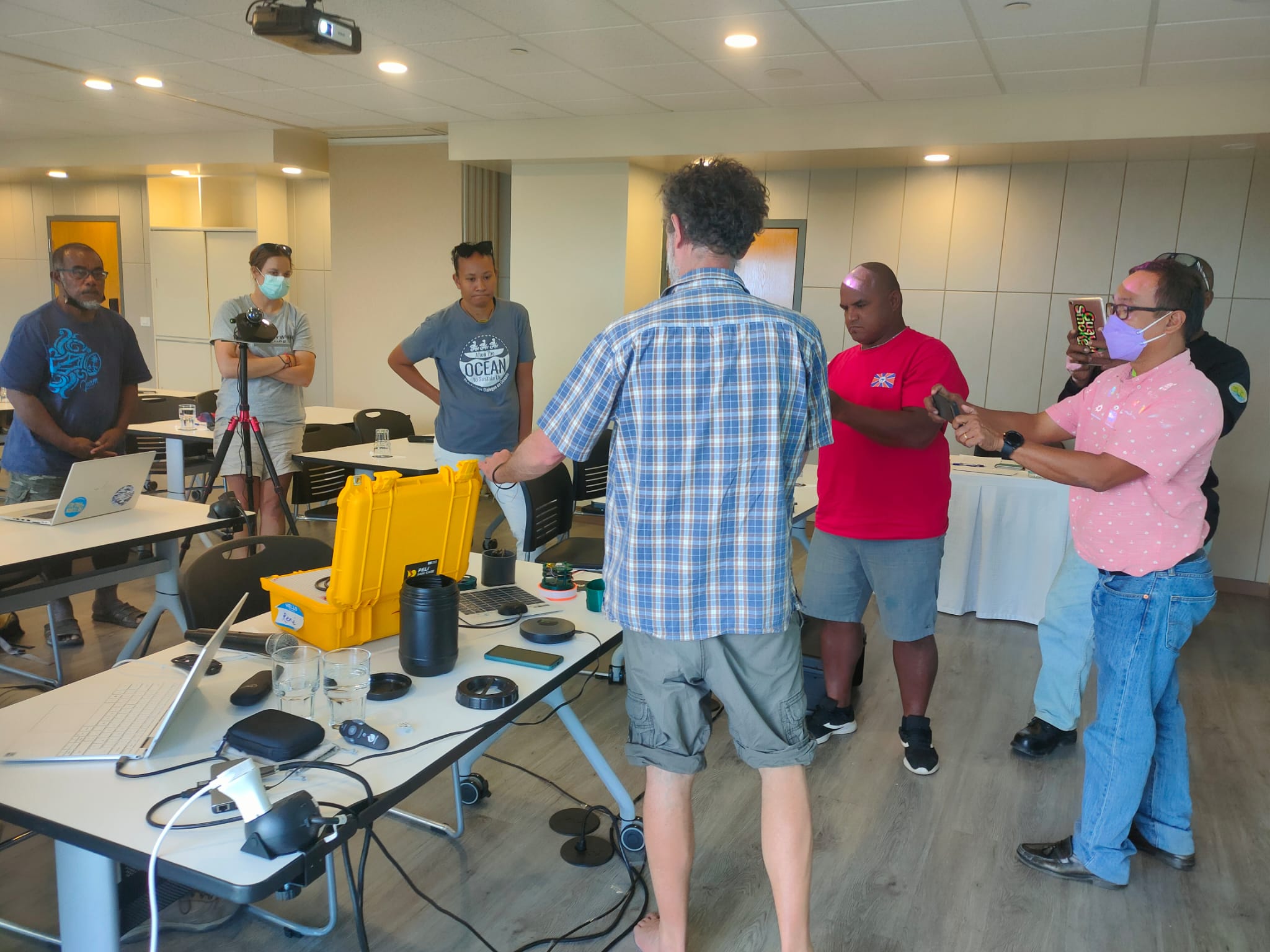Project Description
Small-scale fisheries (SSF) account for two-thirds of the wild-caught fish that people eat. This sector employs more than 100 million people and contributes to food and nutritional security for more than 2 billion.
Managing SSF has historically been extremely complex, with numerous and diverse fisheries operating in informal economies from remote locations such as small island developing states (SIDS). SIDS are highly vulnerable to climate change due to their reliance on SSF but lack the tools to effectively collect and analyse data to make informed decisions. Using low-cost electronics, sensors, open-source software, and expertise in fisheries, the University of St Andrews has developed technologies, processes and systems designed to collect data from SSF. Artificial intelligence (AI) is used to predict and map fishing intensity using data from high-resolution vessel tracking, gear deployment tags and catch monitoring via a customizable mobile app.
In collaboration with WorldFish and the Government of the Republic of Palau, a two-day workshop was held in Koror, Palau on small-scale fisheries data collection systems and processes. Several topics were presented including an overview of the technology available and open-source systems, approaches to interpreting track data and a discussion on the benefits, opportunities, and challenges of fisheries digitalization.
With support from Cyantech Biosolutions, The Nature Conservancy (TNC), Palau International Coral Reef Center (PICRC), four fishing vessels and a local marine protected area ranger have now been fitted with tracking systems for the first time in Palau. The potential to track vessels and match this with information on what is being caught has the potential to transform the way fisheries are managed.
Project Outputs
- Deliver a hands-on workshop to demonstrate the principles, practice, development and operation of open source technology, processes and systems for SSF data collection.
- Set up a pilot demonstration of the St Andrews vessel tracking, Catch App and EcoTag in a Palauan fishery and initiate longer term remote data collection.
- Conduct high level meetings with Palauan Government and regional stakeholders to share experiences of SSF data collection requirements and establish a foundation for future collaboration.
Project Partners
- School of Biology, Coastal Resources Management Group (CRMG), University of St Andrews
- School of Geography and Sustainable Development, University of St Andrews
- IT Research Support, University of St Andrews
- Bureau of Marine Resources, Republic of Palau
- Ministry of Agriculture, Fisheries, and Environment, Republic of Palau
- Palau Community College
- WorldFish
Project Resources
PowerPoint 1 Benefits Of Digital Fisheries – Alex Tilley
PowerPoint 2 Define the Challenges of Data Collection in SSF – Mark James
PowerPoint 3 An Overview of Electronic Monitoring Systems for SSF – Mark James
PowerPoint 4 Harvesting SSF Data via open-source Technology – Mark James & Rene Swift
PowerPoint 5 Approaches To Analysing And Interpreting Vessel Track Data – Tania Mendo
PowerPoint 6 Collecting Digital Catch Data – Alex Tilley
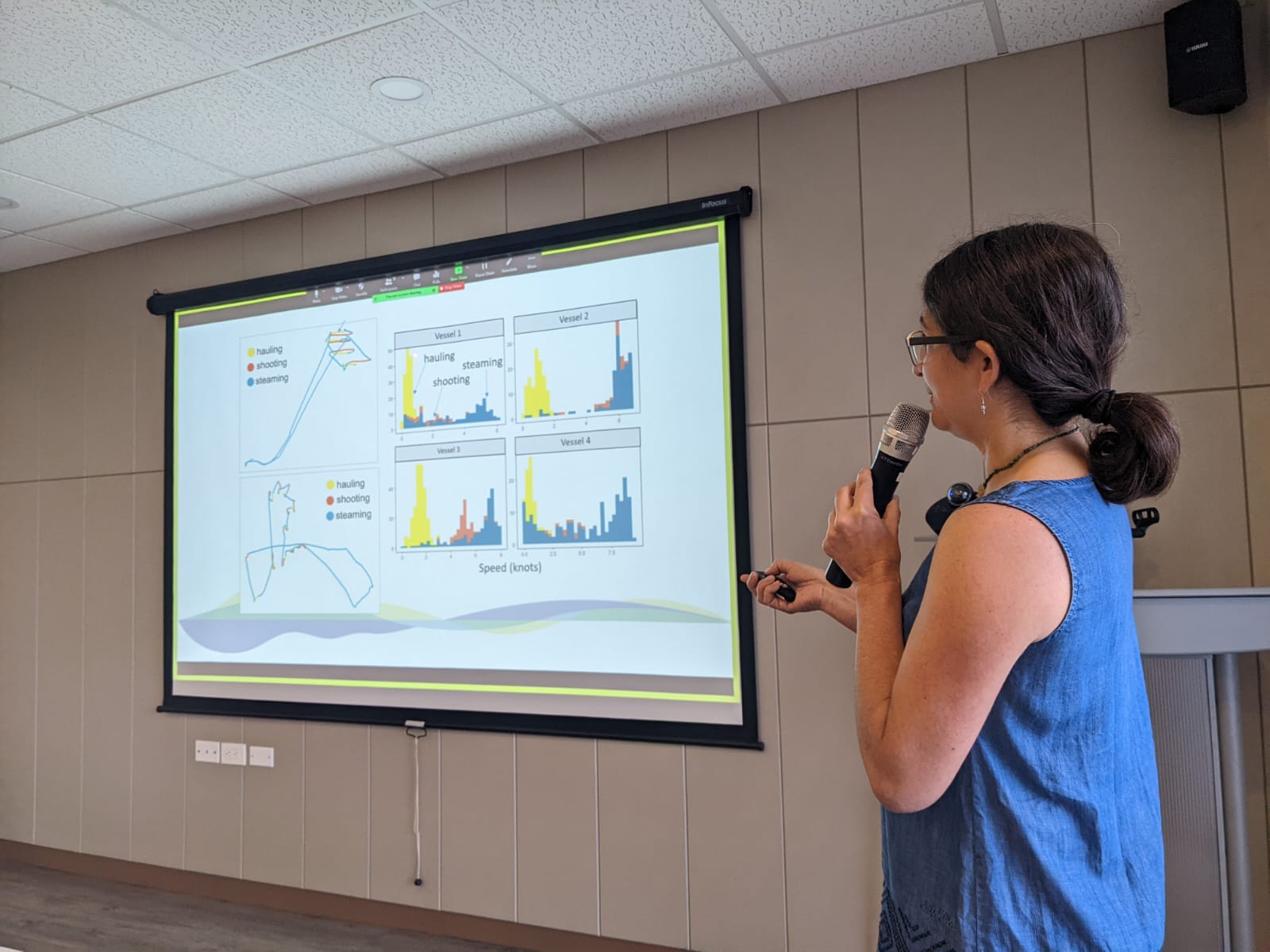
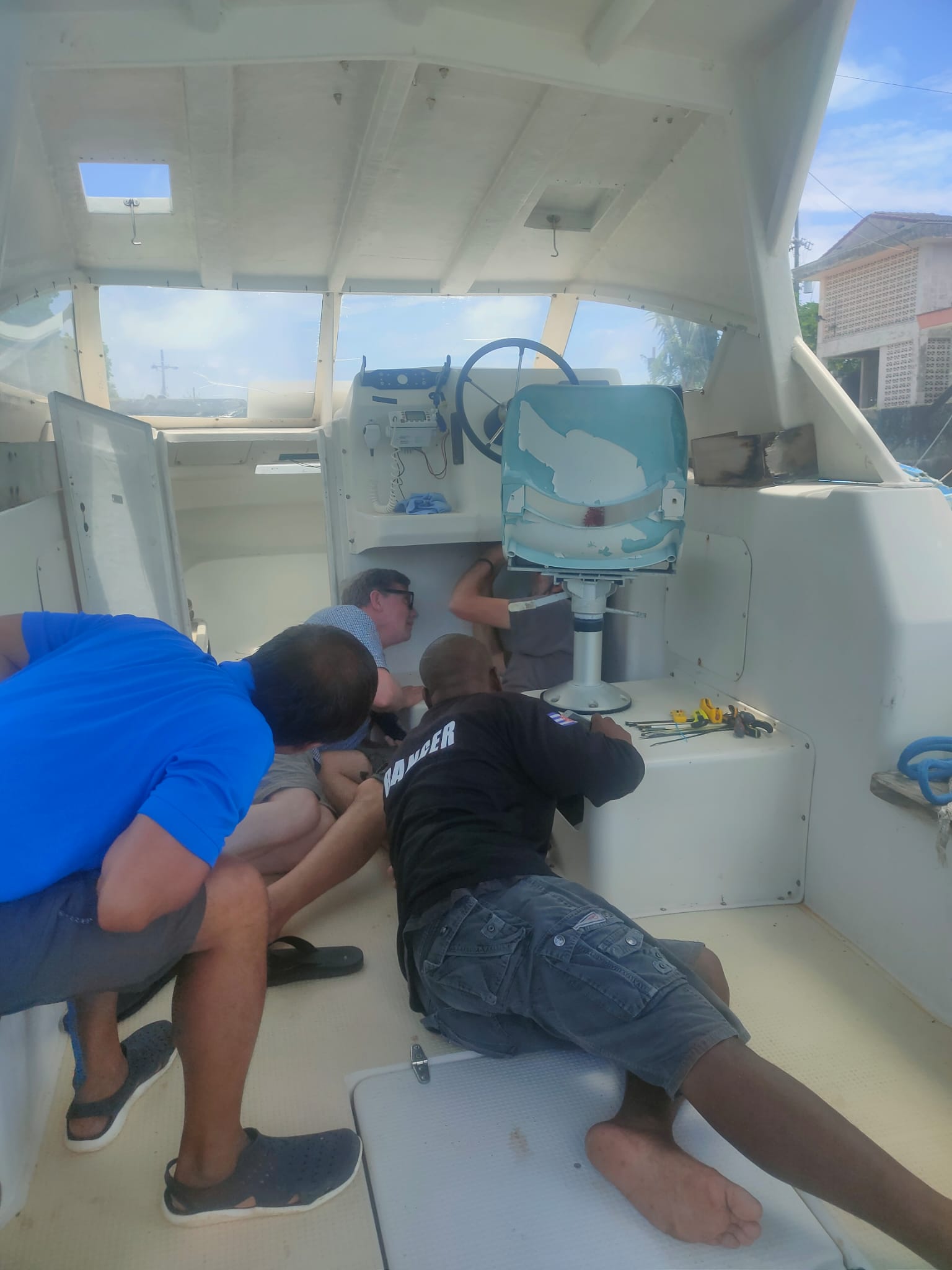
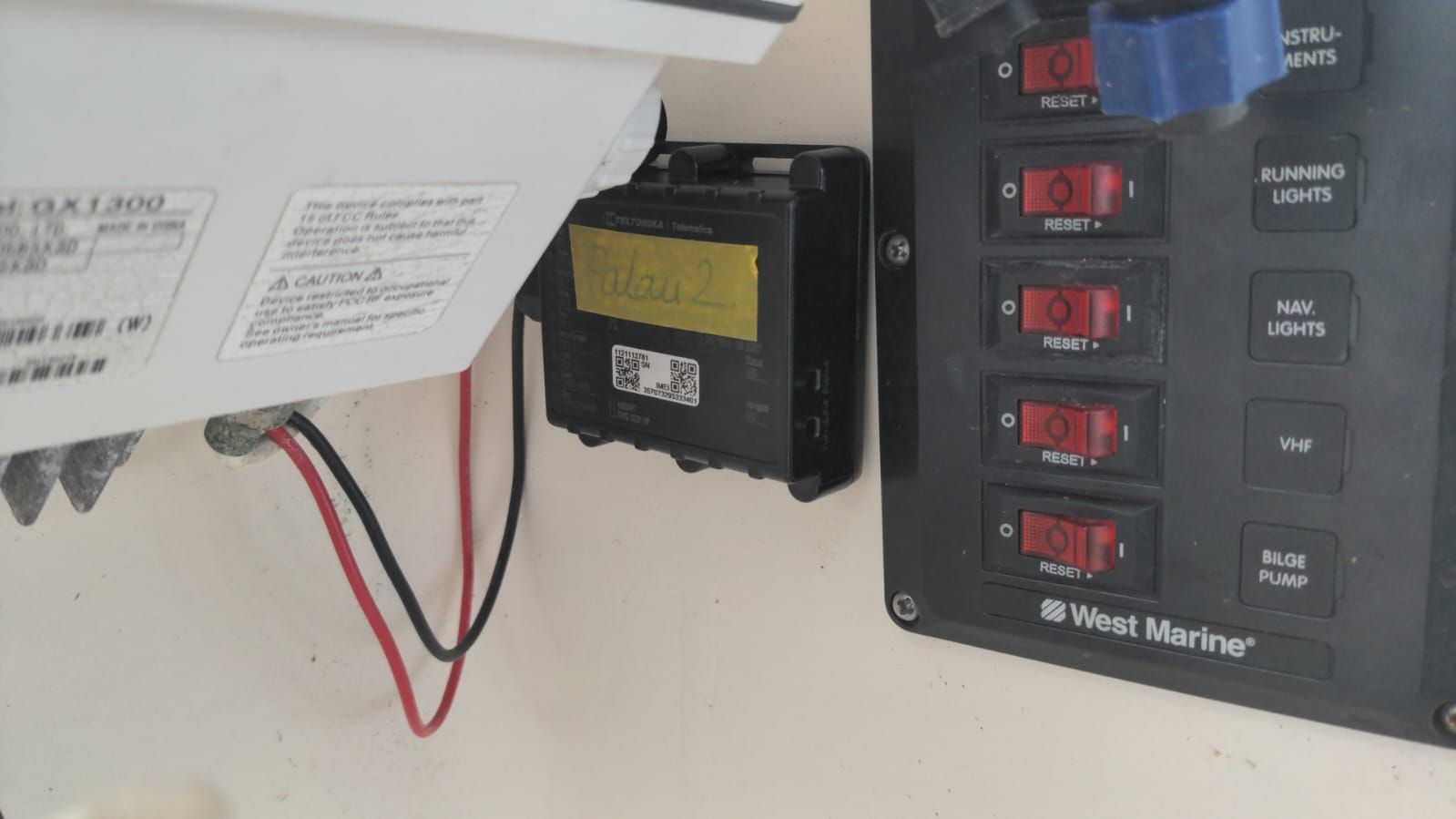
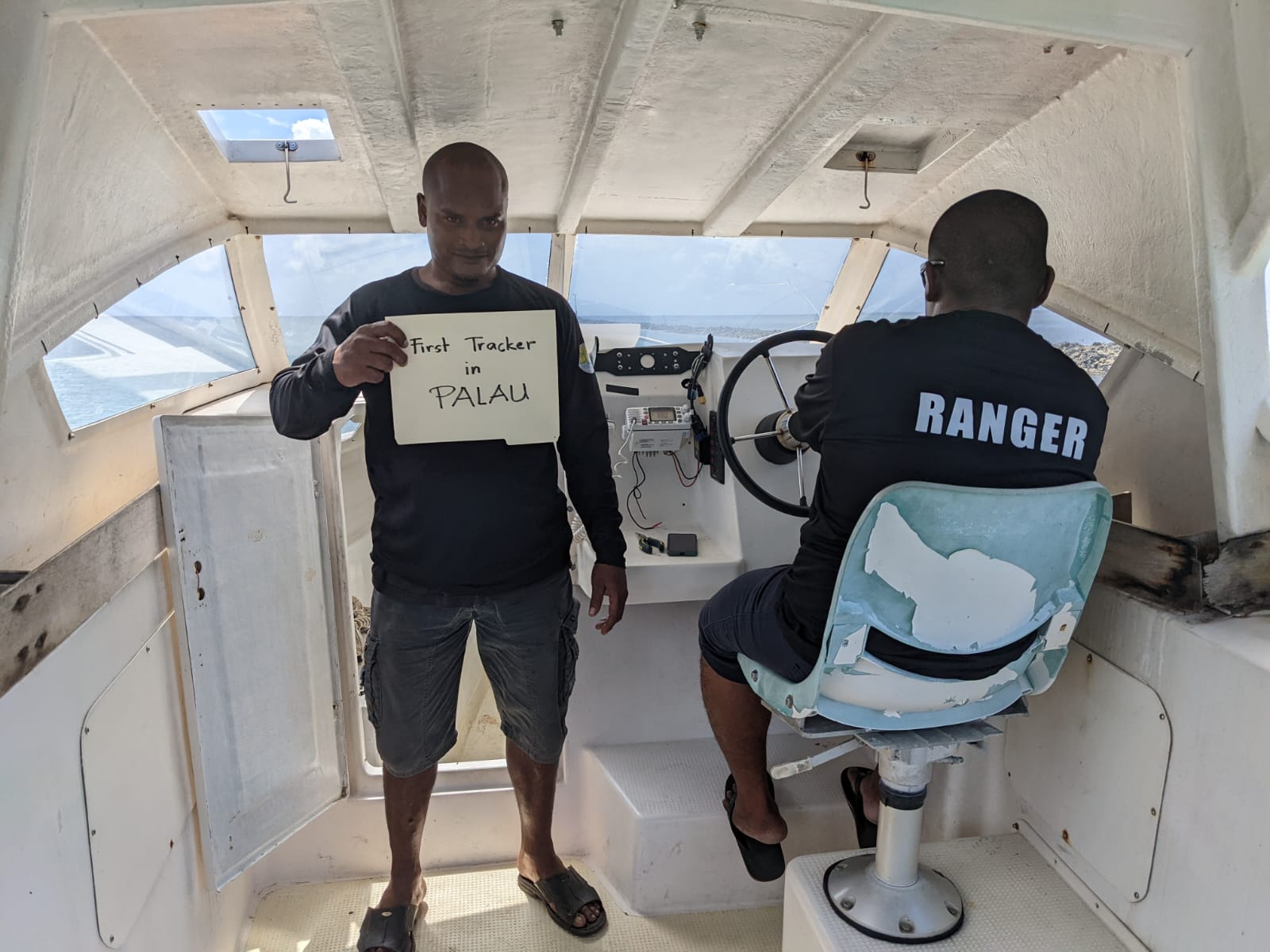
For more information please see the project website.

